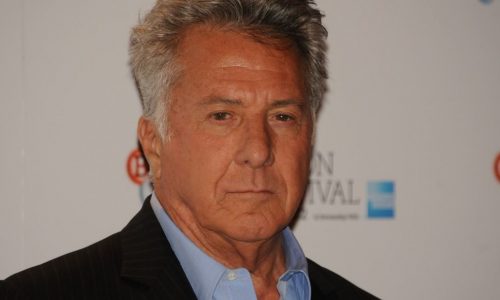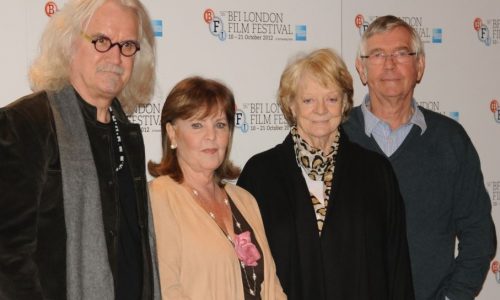Whether it’s the likes of Woody Allen, known as much for directing as acting, or stars such as Clint Eastwood or Ben Affleck, who take a few years to make the jump behind the camera, there’s an old adage in Hollywood that “What I really want to do is direct.”

“I decided a long time ago that I wanted to direct,” begins Dustin Hoffman, who’s been one of the biggest on-screen names since The Graduate in the late 1960s. “It just took me forty years to get around to it,” he laughed as his directorial debut Quartet had its UK premiere at the London Film Festival.
It was working with cinematographer John de Borman on Last Chance Harvey that finally started the ball rolling. “He said I suggested some good shots and added ‘You should direct!’” Hoffman recalls. “So I said ‘Find me something!’”
The pair remained friends and after de Borman’s producer on An Education, Finola Dwyer, said the director of her next film had had to pull out, he suggested Hoffman.
The project had begun some time earlier. It was seven or eight years ago when actor Sir Tom Courtenay asked Ronald Harwood if he was interested in writing a screenplay from his play about a residential home for ageing musicians and BBC Films came on board. “But nothing happened until Dustin came along,” explains Sir Tom.

Most of the main cast were already in place when Hoffman signed up, but there was still a vacancy for Cissy, one of the women in the Quartet of the title. Dame Maggie suggested Pauline Collins for the role, but Hoffman had never seen her, so he watched Woody Allen’s You Will Meet a Tall Dark Stranger, which satisfied him that she was right for the role. “I lucked out,” he beams, Collins smiling proudly beside him.
Once Hoffman got his feet under the desk, he pointed his cast towards a 1983 documentary called Tosca’s Kiss, about a mansion in Milan, built by Verdi, who stipulated after his death that only old singers and musicians could live there.
“It was very moving,” remembers Dame Maggie Smith, who plays Jean, the other woman in the Quartet. “I felt that if Dustin was on that wavelength, we’d be safe.”
So how did he adapt to life on the other side of the camrea? “Dustin is a dynamo and a darling,” enthuses Collins. “He is one of the most inspiring and kindest directors, as he understands actors.”
“I don’t crave praise,” notes one of the most independent performers around, stand-up comic-turned-actor Billy Connolly. “But it’s nice to be told you’re doing OK. He’s good at that.”
From years in front of the camera, Hoffman always knew where he’d be coming from as a director. “It’s a bad sign when you see a director mouthing the words,” he suggests. “It means they’ve already shot the movie in their heads. Some directors like to be surprised. Other’s don’t. All actors direct themselves while they’re acting,” he continues. “You have to protect yourself as an actor, as you’re not allowed in the cutting room.” He begins to show a little frustration as he concludes, “If you see bad acting, don’t blame the actors. Blame those in the cutting room.”
“Writers won’t like this,” adds Collins, “Dustin encouraged lots of improvisation on the dialogue. The script is a basis, but not the end. Sometimes things take you down a more exciting avenue and he always let us.”
Making Quartet exciting was very important for Hoffman. “Most people, if they hear that it’s a film about ageing opera singers, will wait for the DVD. I felt an obligation to keep energy in it. To keep the audience interested. It’s not a movie about smelling the urine.”
One of the ways that the film was given a sense of authenticity was by casting real retired musicians as the extras. “They were jamming between scenes,” remembers the youngest of the cast, Sheridan Smith. “And Dustin played piano.”
“For many of these people, the phone hasn’t rung for forty years,” recalls Hoffman. “They came with such verve every day. It didn’t feel like a job for them.”
